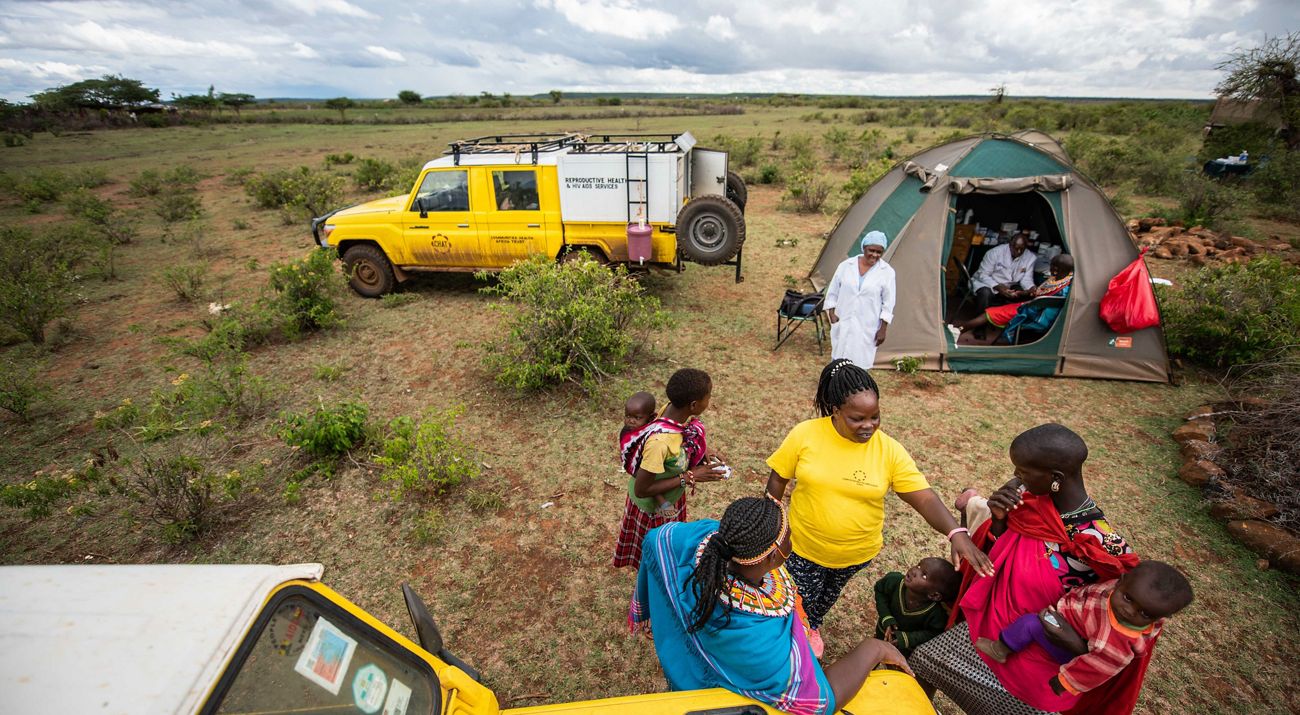
How Reproductive Health Supports Conservation in Kenya
Funding from TNC has helped provide 75,000 people with health information, reducing pressure on the landscapes that iconic wildlife depends on.
This page was updated in November 2020.
The Saturday market was crowded and the sun was getting hot as it reached the midday sky. Women were adorned with layers of beaded necklaces, all in brilliant primary colors. Young men were dressed in the latest style – patterned socks pulled high up their calves and small handheld mirrors tucked into beaded bracelets on their biceps. Vendors had everything from beaded earrings to plastic knick-knacks spread out across small tables or on cloths on the ground.
The Communities Health Africa Trust (CHAT) mobile clinic was tucked under a lone acacia tree in a clearing away from the chaos of the busy Saturday market. They were there to administer much-needed health services, such as vaccinations and HIV testing, along with family planning counseling.
Paulina Lenchoriba was also there. She comes almost every week to buy supplies for her small tea shop about an hour’s drive away. This week she has another objective: to talk to women about CHAT and the services they provide. A decade ago, CHAT changed her life, and she uses every opportunity to spread the word.
The Nature Conservancy is helping spread the word, too. Through critical funding to CHAT, we are helping expand the reach of their integrated Population, Health, and Environment (PHE) program that is tackling some of the biggest threats to Kenya's iconic wildlife.
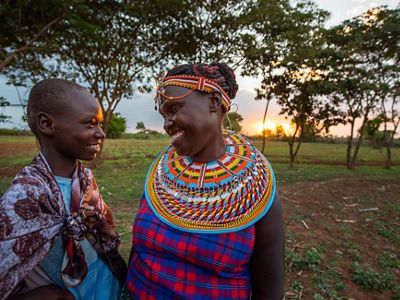
Paulina lives in Samburu County, Kenya, with her husband Mpirayon, his other wife, Nakuyei, and several of their children and grandchildren. After having four kids between 1986 and 1993, Paulina was ready to stop, but she ended up getting pregnant and having miscarriages at least three more times. All the pregnancies put enormous stress on her body. “If you had seen me, I was weak like an old person,” she said.
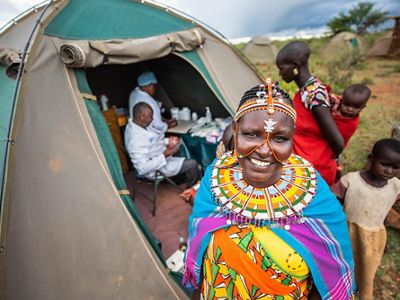
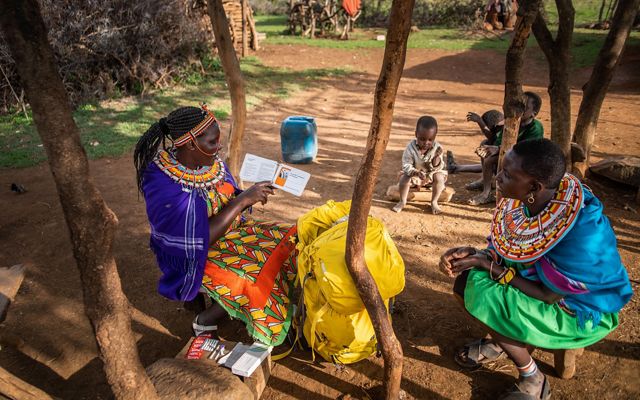
Eventually she met Susan from CHAT, who helped her find a modern contraception method that worked for her. CHAT works by using Community Own Resource Persons (CORPs) — trusted community members who are trained by CHAT to provide support on health, family planning, and other community needs.
CORPs like Susan go door-to-door in their own and surrounding communities to provide information and counseling on PHE topics. The familiar yellow CHAT mobile clinics usually come a few weeks later with a nurse to distribute both the requested family planning methods and provide basic medical care to anyone in the community who needs services.
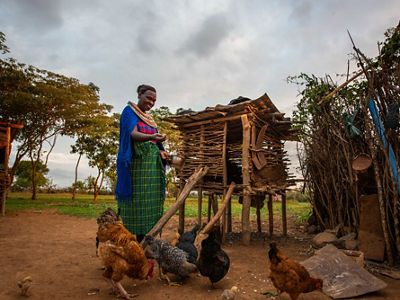
At the time that Paulina met Susan, she and Mpirayon were illegally cutting trees for charcoal to make ends meet. There were a lot of elephants in the forested areas, so not only was this compromising key habitat, it was a particularly dangerous activity for Paulina, her husband, and the children that tagged along. Susan counseled them on the environmental damage of this practice, and helped them transition to farming.
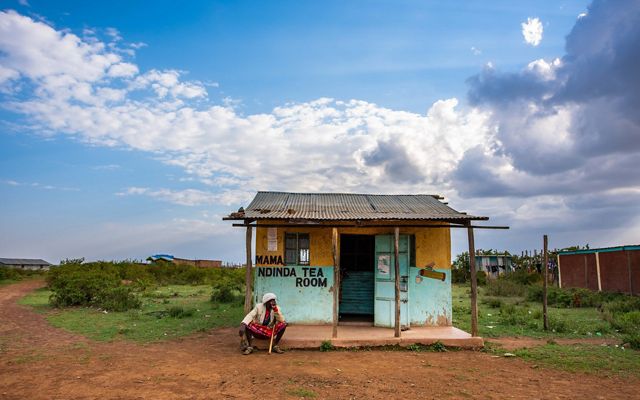
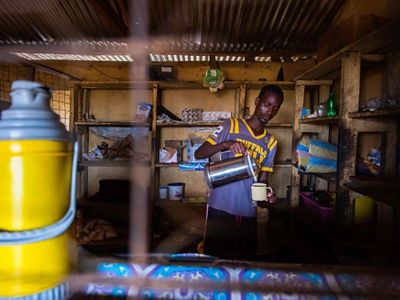
The profit from farming maize and beans helped them to build a small cement house, and it provided them with capital to open the “Mama Ndinda Tea House,” named after Paulina’s nickname as the mother of her first-born Ndinda. Mpirayon and his son, Petro Chami, run the shop that sells chai and mandazi, a type of fried bread similar to a beignet.
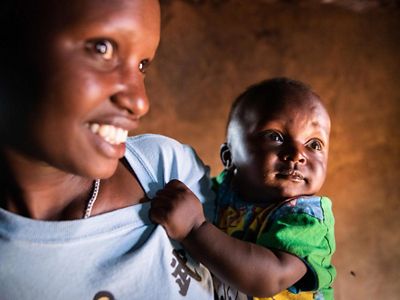
Paulina is thrilled with her decision to use family planning, and she has convinced several family members to try the five-year implants. Most recently was Petro Chami’s wife, Beatrice, who had an emergency cesarean section to deliver her son, Lengai. Another pregnancy immediately after a C-section could be dangerous for her, so she was especially grateful for access to family planning through CHAT.

CHAT provides holistic reproductive health services that integrate a strong component of ecological awareness. Giving women the tools to determine the size of their own families can drastically improve their quality of life, reduce pressure on natural resources, such as pasture and water, and help degraded lands recover, benefitting local wildlife.
Animals in this area of northern Kenya that depend on healthy grasslands and wide open spaces include lions, elephants, Grevy's zebra, and reticulated giraffes.
In just two years, funding support from TNC has allowed CHAT to reach 75,000 people with PHE information, provide 15,000 women with their preferred family planning method, and treat 5,900 patients with basic curatives.
CHAT’s PHE approach creates healthier communities that can enact positive social and environmental change and reduce the pressure on Kenya’s natural resources. And with affordable health care as one of Kenya’s Big 4 agenda programs, CHAT’s collaboration with county governments ensures the viability of its work for years to come.
To learn more about CHAT’s work, visit chatafrica.org.